WMG News
World's 'first named dinosaur' reveals new teeth with scanning tech
 Pioneering technology has shed fresh light on the world’s first scientifically-described dinosaur fossil – over 200 years after it was first discovered - thanks to research by WMG at the University of Warwick and the University of Oxford’s Museum of Natural History.
Pioneering technology has shed fresh light on the world’s first scientifically-described dinosaur fossil – over 200 years after it was first discovered - thanks to research by WMG at the University of Warwick and the University of Oxford’s Museum of Natural History.
Professor Mark Williams at WMG has revealed five previously unseen teeth in the jawbone of the Megalosaurus – and that historical repairs on the fossil may have been less extensive than previously thought.
Institute of Corrosion award presented to WMG’s Dr Michael Auinger
 Dr Auinger’s paper entitled ‘Grain boundary oxidation in iron-based alloys investigated by O enriched water vapour – The effect of mixed oxides in binary and ternary systems,’ has been awarded the TP Hoar Award 2016, by the Institute of Corrosion.
Dr Auinger’s paper entitled ‘Grain boundary oxidation in iron-based alloys investigated by O enriched water vapour – The effect of mixed oxides in binary and ternary systems,’ has been awarded the TP Hoar Award 2016, by the Institute of Corrosion.
The award takes its name from Dr Hoar who was the first recipient of the UR Evans Award – the premier scientific award of the Institute of Corrosion. The TP Hoar Award essentially recognises the Best Paper in Corrosion Science amongst engineers and scientists in steels processing.
This award marks a very successful period for Dr Auinger. In September he also received recognition from the European Optical Society (EOS), scooping the prestigious Best Paper Prize 2014-2015.
Queen’s wedding cake resurrected with scanning tech
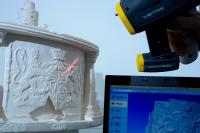 Cutting-edge technology has brought Queen Elizabeth II’s wedding cake back to life – thanks to research by WMG at the University of Warwick.
Cutting-edge technology has brought Queen Elizabeth II’s wedding cake back to life – thanks to research by WMG at the University of Warwick.
Professor Mark Williams at WMG, alongside the British Sugarcraft Guild (BSG), employed 3D scanning technology to recreate a full-sized replica of a wedding cake presented to Queen Elizabeth II and Prince Philip – which was almost totally destroyed by vandals in 2015.
The technology was able to accurately scan the cake to within 0.1mm and reproduce a high-resolution 3D model that was then be used to digitally repair the cake.
UK steel production to benefit from efficiency innovation
Steel production in the UK could be cheaper and more energy-efficient in the future, thanks to research at WMG, University of Warwick.
The ASSURE2 project, led by Professor Claire Davis, is looking to significantly cut steel production costs,  and reduce energy consumption by over 300%, through exploring the use of belt casting technology.
and reduce energy consumption by over 300%, through exploring the use of belt casting technology.
Belt casting is a significantly lower energy production route compared to traditional continuous casting techniques, as belt casting is a near net shape casting process, producing strip that needs minimal hot deformation to achieve the required product thickness.
It is also very efficient because it can minimise or eliminate any reheating processes, which reduces overall costs.
Furthermore, there are certain advanced high strength strip (AHSS) steel grades which are commercially attractive but cannot be produced using conventional casting techniques - which could be manufactured using belt casting.
WMG Professor recognised by the Institution of Engineering and Technology
 Professor Mark Williams has been awarded an IET Achievement Medal for his outstanding work in Forensic Engineering.
Professor Mark Williams has been awarded an IET Achievement Medal for his outstanding work in Forensic Engineering.
The IET Achievement Medals are awarded to individuals, such as Professor Williams, who have made major and distinguished contributions in the various sectors of science, engineering and technology.
Dr Ian Nussey OBE, from the IET Awards and Prizes Committee explains: “Professor Mark Williams criminal forensics engineering is helping to shape the criminal justice system. It has established the truth where prosecution has not been pursued, provided pivotal evidence at a number of high profile murder trials and helped victims' families and vulnerable people.
Young engineers rise to the challenge
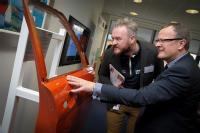 A team of students from the University of Warwick, supported by academics and researchers from WMG, competed in the IMechE Railway Challenge in July.
A team of students from the University of Warwick, supported by academics and researchers from WMG, competed in the IMechE Railway Challenge in July.
The Challenge which took place at Stapleford Miniature Railway near Melton Mowbray, Leicestershire, is designed to attract fresh new talent into the rail industry. Each team was tasked with designing and manufacturing a miniature railway locomotive in accordance with a specific technical brief. This was the first year WMG had competed, and the team achieved sixth place.
Sophisticated engineering scanning tech helps archaeologists identify rare ‘ghost coin’
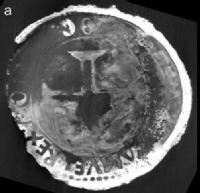 Sophisticated CT scanning technology normally used by researchers from WMG at the University of Warwick to assist high tech manufacturing, has helped uncover the existence of a rare silver coin called an ‘Indio’ discovered by archaeologists investigating a shipwreck off the coast of Oman.
Sophisticated CT scanning technology normally used by researchers from WMG at the University of Warwick to assist high tech manufacturing, has helped uncover the existence of a rare silver coin called an ‘Indio’ discovered by archaeologists investigating a shipwreck off the coast of Oman.
Over 2,800 artefacts were found in the wreck, including a bronze bell with an inscription dating back to 1498, gold coins from the era and an important bronze disc embossed with the "esfera armilar" — a personal emblem of Dom Manuel I, the then-king of Portugal.
From molecule to manufacture…
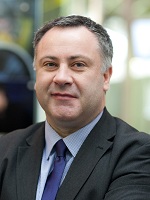 Inspired by the materials that helped astronauts survive Apollo 11’s mission to the moon, Professor Tony McNally has focused his career on developing new composites based on nano materials. WMG’s Professor McNally, who is based at the International Institute for Nanocomposites Manufacturing (IINM), was recently interviewed for Reinforced Plastics (www.reinforcedplastics.com), below is a snapshot of his thoughts on the challenges facing his research field.
Inspired by the materials that helped astronauts survive Apollo 11’s mission to the moon, Professor Tony McNally has focused his career on developing new composites based on nano materials. WMG’s Professor McNally, who is based at the International Institute for Nanocomposites Manufacturing (IINM), was recently interviewed for Reinforced Plastics (www.reinforcedplastics.com), below is a snapshot of his thoughts on the challenges facing his research field.
While my research is rooted in fundamental engineering science, the target is functional composite materials that can be readily manufactured into products in high volumes.
WMG establishes new National Plastics Processing Centre
 WMG at the University of Warwick has established a new National Plastics Processing Centre (NPPC) which will provide a national hub for innovation and research in plastics processing.
WMG at the University of Warwick has established a new National Plastics Processing Centre (NPPC) which will provide a national hub for innovation and research in plastics processing.
The new NPPC brings a fully integrated approach to plastics design, manufacturing and disposal, encompassing multifunctional design and low environmental impact.
WMG has an extensive range of plastic design, manufacture and research technologies across its facilities which will now work together in the new Centre. It will have its own bespoke building by 2017 with facilities for training, research and development, and will also house a fully equipped elastomer technology laboratory.
WMG has an established track record of innovation and technology transfer in plastics processing. It has developed extensive capabilities and facilities across a wide range of processes and working with both large global companies and SMEs across a variety of sectors to develop and embed plastics processing. The capability offered from WMG is that most widely used within the plastics industry's processes including extrusion/compounding, injection moulding, thermoforming, blow moulding and rotational moulding.
Expert Comment: Dr Stuart Coles
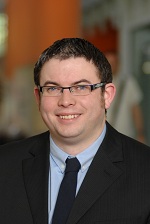 Dr Stuart Coles is an Assistant Professor in Sustainable Materials and Manufacturing His main research interests are based around sustainability and the substitution of natural materials into industrial products.
Dr Stuart Coles is an Assistant Professor in Sustainable Materials and Manufacturing His main research interests are based around sustainability and the substitution of natural materials into industrial products.
Commenting on the Automobile Association (AA) joining green groups in warning that changes in energy policy will harm the climate he said:
“Incentives are needed on low-emission vehicles to keep them attractive to consumers whilst technology catches up and battery-powered cars are able to compete in terms of function with conventional vehicles."
“In his Budget, Chancellor George Osborne announced that the nil vehicle excise duty (VED) band for clean petrol cars would be restricted in future to electric vehicles. This removes a tax break for clean petrol cars and hybrids, which will from 2017, attract the same VED as gas guzzlers."
“The Government’s policy on VED is damaging to the environment as effective low carbon options, such as plug-in hybrids, will now fall into the same tax band as many other higher emission vehicles. Whilst clean electric vehicles are available, they are not currently able to travel much farther than 100-120 miles (the maximum for the Nissan Leaf is 124 miles with perfect conditions) and are therefore not a viable option on many journeys.”
